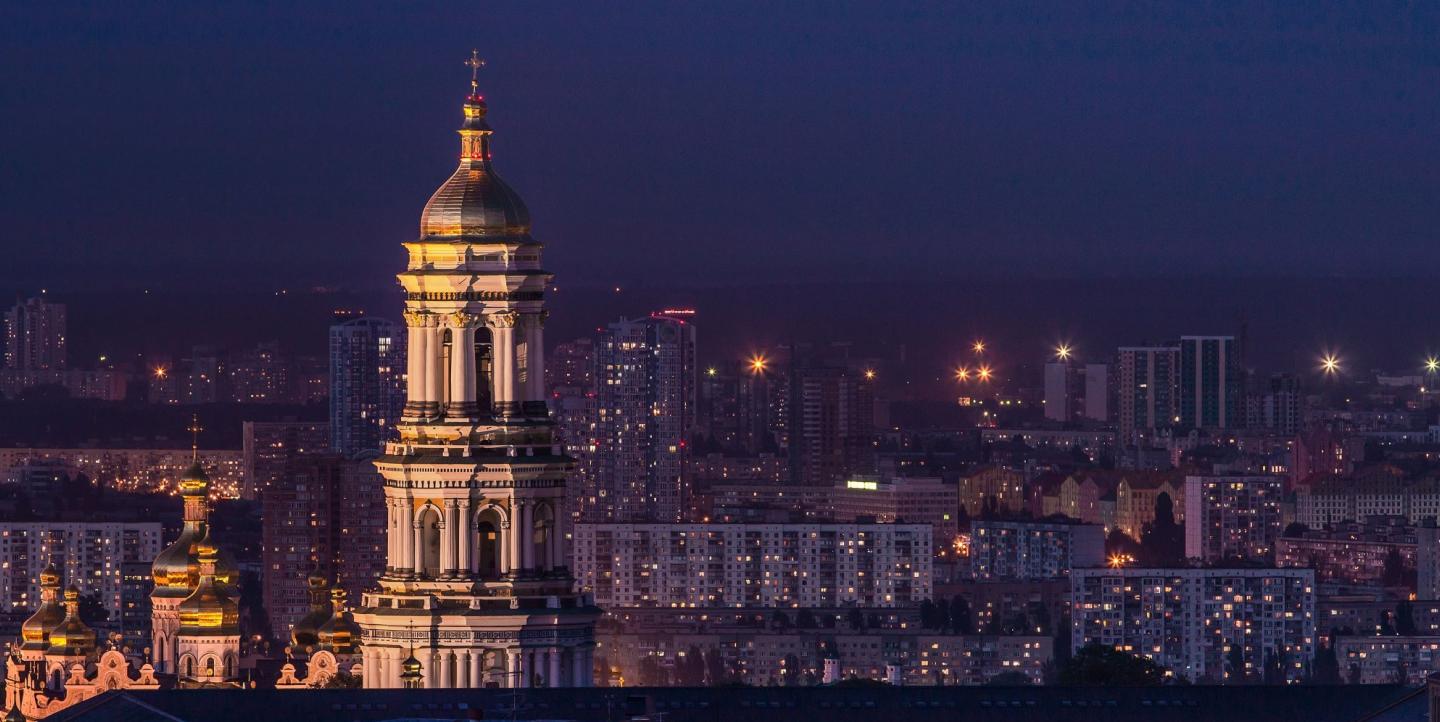Independent, ethical journalism plays a key role in informing people and pushing for accountability. To accomplish this in times of war, journalists must break through significant amounts of mis- and disinformation with their reporting. They must also ensure their own safety and security.
Reporting in this context is both challenging and dangerous. International support in the form of funding, protective gear and equipment can thus be crucial as journalists work to distinguish truth from propaganda.
The Perugia Declaration for Ukraine — introduced by members and partners of the Global Forum for Media Development at the International Journalism Festival in Perugia, Italy — calls for just this: to assist journalists as they report amid the Russian invasion of Ukraine. Focused on the need to support independent journalism in Ukraine, the declaration condemns “Russia’s attacks on press freedom and freedom of expression in Ukraine in the strongest possible terms.”
“The targeting, torturing, and killing of journalists is abhorrent and must be stopped. Those responsible must be held accountable and brought to justice under national and international law,” it reads.
Since Russia launched its invasion of Ukraine in late February, seven journalists have been killed while reporting from the ground. At least two more have been injured and another is held by Russian forces, according to the Committee to Protect Journalists. “For the sake of the immediate future and safety of our Ukrainian colleagues, and the long term viability of independent, public interest journalism everywhere, this is a moment that we all need to rise to,” the declaration urges.
Signed by more than 160 organizations and 130 individuals already, the declaration is available in English, Belarusian, French, Ukrainian, Russian and Italian. It calls for the following action to be taken:
- First, it urges international media and journalists to provide additional personal protective equipment to Ukraine while drawing attention to the social insecurity of Ukrainian field producers and translators working with foreign media. “Open your doors to displaced journalists and newsrooms. Give them somewhere to work from. Hire them if you can afford to,” the statement reads.
- Second, the declaration calls on private and public donors, and funders of professional journalism to “increase and provide flexible financial support to media that produce independent, ethical journalism” on the Russian invasion of Ukraine.
- Third, it asks that the European Union, its member states, members of the Media Freedom Coalition, and all states that care about the right to freedom of expression and access to information to “use all multilateral fora to defend the rights of journalists and advance their protection as civilians under international humanitarian law, particularly in the context of Russia’s war on Ukraine.”
- Finally, the declaration urges technology, telecoms, internet intermediaries and advertisers to “work with the media and journalism community to identify, protect and uplift independent, ethical journalism, fact-checking, and media literacy efforts,” while working to prevent “automated takedowns of journalistic content documenting evidence of international crimes of aggression, war crimes, crimes against humanity, and other serious human rights violations.”
The importance of on-the-ground journalism in Ukraine
The Perugia Declaration was launched on April 9 during a session at the International Journalism Festival in which media professionals covering the war in Ukraine discussed how local journalists are playing a critical role in telling the stories of their communities. They also covered some of the unique challenges faced by journalists reporting on the invasion.
Asked about the situation of mis- and disinformation in the early days of the invasion, Daryna Shevchenko, CEO of The Kyiv Independent, said that there was an overwhelming amount of messaging that caused panic and anxiety: “In the beginning there was just a mess. Everybody was reading everything and wouldn't filter — and wouldn't know what and how to filter.”
It was important in this context to keep people calm. “That's probably the most important job the local journalists took on from day one — to just stop, calm everyone down and stop spreading the news that is not the news actually, that is just the emotion and the fear.”
Making sure that people in eastern Ukraine get trustworthy information has proven especially difficult, according to Olha Kyrylova, a journalist covering news in Donetsk and Luhansk. “Unfortunately a lot of people in the region have access to Russian TV and Russian radio so they should have a source of truthful and real information on what is going on,” she said.
The panelists stressed the critical role journalists and newsrooms in Ukraine play today, especially when it comes to reporting compelling stories that reach a global audience. Local journalists in Ukraine are in the best position not only to gather the facts on the ground, “but also to capture a visceral reality,” said Tamara Qiblawi, senior producer for CNN Digital.
Shevchencko added: “We need to show the world that these people actually are the same as you.”


